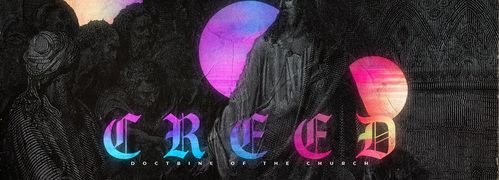Monday Devo

Scripture Reading:
Colossians 1
15 Christ is the visible image of the invisible God.
He existed before anything was created and is supreme over all creation,
16 for through him God created everything
in the heavenly realms and on earth.
He made the things we can see
and the things we can’t see—
such as thrones, kingdoms, rulers, and authorities in the unseen world.
Everything was created through him and for him.
17 He existed before anything else,
and he holds all creation together.
18 Christ is also the head of the church,
which is his body.
He is the beginning,
supreme over all who rise from the dead.
So he is first in everything.
15 Christ is the visible image of the invisible God.
He existed before anything was created and is supreme over all creation,
16 for through him God created everything
in the heavenly realms and on earth.
He made the things we can see
and the things we can’t see—
such as thrones, kingdoms, rulers, and authorities in the unseen world.
Everything was created through him and for him.
17 He existed before anything else,
and he holds all creation together.
18 Christ is also the head of the church,
which is his body.
He is the beginning,
supreme over all who rise from the dead.
So he is first in everything.
Commentary from the ESV Study Bible:
1:16 by him all things were created. Jesus did not come into existence when he was born of the virgin Mary. He was the agent of creation through whom God made heaven and earth (John 1:3; 1 Cor. 8:6). Jesus cannot be the first thing created (as the ancient Arian heresy claimed) since “all things” without exception were created by him. thrones or dominions or rulers or authorities. Paul is using the current Jewish terms for various rankings of angels (although he doesn’t explain their relative ranks). His emphasis here may be on the evil angels, since they play a significant part in this letter (Col. 2:8, 10, 15, 20). This would not mean, however, that Jesus created evil angels; all spiritual powers were created by Jesus, but some later chose to rebel against God and so to become evil. Jesus is not only the agent of creation but is also the goal of creation, for everything was created by him and for him, that is, for his honor and praise. Since Jesus is in this sense the goal of creation, he must be fully God.
1:17 in him all things hold together. Christ continually sustains his creation, preventing it from falling into chaos or disintegrating (cf. Heb. 1:3).
1:18–20 Christ Is Lord of Redemption. Christ is Head of the church and has accomplished reconciliation at the cross.
1:18 he is the head of the body. Paul spoke elsewhere of the church as the body of Christ (1 Cor. 12:27), but he takes the image a step further here and envisions Christ as the head of the body (see also Eph. 1:22–23; 5:25). This metaphor conveys Christ’s leadership over the body and may also suggest his role in providing sustenance for it.
1:17 in him all things hold together. Christ continually sustains his creation, preventing it from falling into chaos or disintegrating (cf. Heb. 1:3).
1:18–20 Christ Is Lord of Redemption. Christ is Head of the church and has accomplished reconciliation at the cross.
1:18 he is the head of the body. Paul spoke elsewhere of the church as the body of Christ (1 Cor. 12:27), but he takes the image a step further here and envisions Christ as the head of the body (see also Eph. 1:22–23; 5:25). This metaphor conveys Christ’s leadership over the body and may also suggest his role in providing sustenance for it.
Study Questions:
- In our Creed series we've been talking about what the church is and why the church exists. It's important for us to know what God intended the church to be so that we can honor him. So, in your own words, why do you think the church exists? Have you ever pondered this question before? How would you have answered this question based on growing up, whether in or out of church?
- The first reason the church exists is so that we can minster to God through worship. According to Colossians 1, we exist for him. Worship of him is all about lifting up his name, expressing his nature, singing about who God is and what he's like. This stands in contrast to how a lot of Christians view worship, using it as a means to be ministered to themselves. It should be about him, not satisfying our own feelings. This is where we tend to get it backwards in today's church culture. A lot of modern worship is centered around us, if we're being honest, while older hymns tended to focus more on the nature and glory of God. This is why we are careful at the City to sing songs, whether old or new, that focus more on him than us. Is this something you've ever thought about in the kinds of Christian/worship music you choose to listen to? What are the dangers of becoming too "me" focused in our worship?
Pray:
That you would worship to bring God glory.
That you being ministered to would be a byproduct of worshiping God, not the primary goal.
That you being ministered to would be a byproduct of worshiping God, not the primary goal.
This Week's City 7:
Try to commit to memory!
2. Are there sources outside the Bible that confirm the Biblical account of Jesus’ resurrection from the dead? Many Roman and Jewish historians have confirmed that the apostles died as martyrs for preaching that they saw Jesus risen from the grave. No one dies for something they know to be a lie.
(Luke 1:1-4; Acts 26:26; 1 John 1:1-4, Josephus, Clement, Hegesippus, Tertullian, Origen, Polycarp)
(Luke 1:1-4; Acts 26:26; 1 John 1:1-4, Josephus, Clement, Hegesippus, Tertullian, Origen, Polycarp)

No Comments